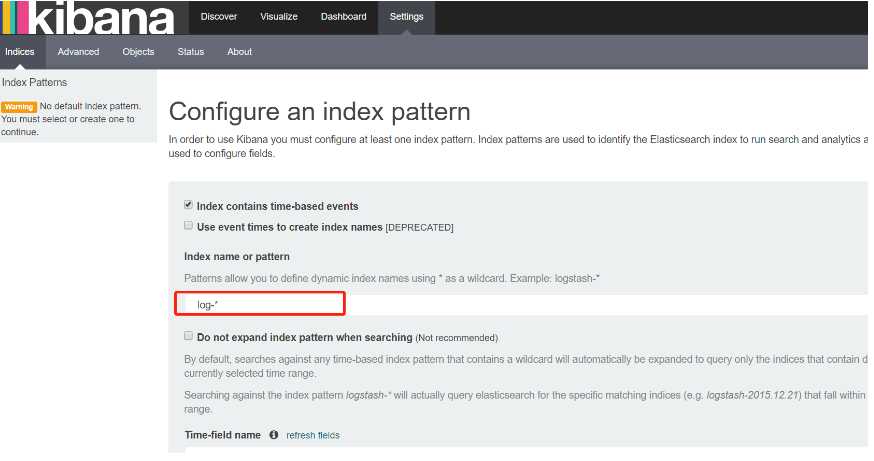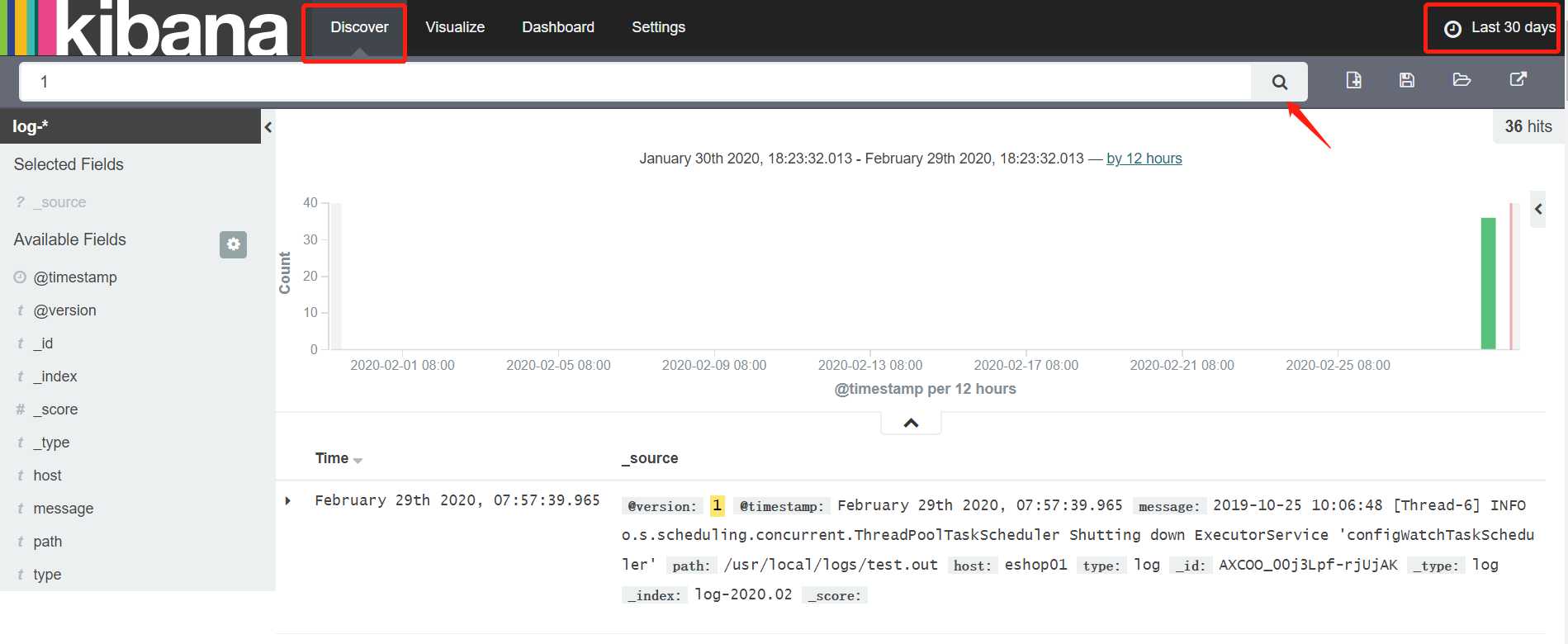标签:root用户 cas arc port transport multi index mic info
input {
file {
type => "log"
path => ["/usr/local/logs/*.out"]
start_position => "end"
ignore_older => 0
codec=> multiline { //配置log换行问题
pattern => "^%{TIMESTAMP_ISO8601}"
negate => true
what => "previous"
}
}
beats {
port => 5044
}
}
output {
if [type] == "log" {
elasticsearch {
hosts => ["http://127.0.0.1:9200"]
index => "log-%{+YYYY.MM}"
}
}
}启动
nohup ./bin/logstash -f config/logstash.conf > log.log &
生成日志
上面配置的日志目录是/usr/local/logs/*.out,可以生成一些日志到指定目录下就能被收集到啦。
cluster.name: my.elk #集群名称,如果有多个集群,那么每个集群名就得是唯一的
node.name: node-1 #节点名称
node.master: true #该节点是否是master,true表示是的,false表示否,默认是true
node.data: true #该节点是否存储数据,默认true表示是的
http.port: 9200 #http访问端口,默认是9200,通过这个端口,调用方可以索引查询请求
transport.tcp.port: 9300 #节点之间通信的端口,默认为9300
network.host: 0.0.0.0 #访问地址 配置外网访问
#discovery.zen.ping.unicast.hosts: ["127.0.0.1:9300", "127.0.0.1:8300"]
#node.max_local_storage_nodes: 2 #设置一台机子能运行的节点数目,一般采用默认的1即可,因为我们一般也只在一台机子上部署一个节点
useradd es
chown -R es elasticsearch-2.4.6/
su es //切换用户
./bin/elasticsearch -d //-d代表后台启动访问地址验证是否启动成功
安装插件
cd bin
./plugin install mobz/elasticsearch-head访问 http://192.168.1.21:9200/_plugin/head/
server.host: "0.0.0.0"
elasticsearch.url: "http://localhost:9200"启动
(注意切回root用户)
nohup ./bin/kibana &
配置索引库
进入网址http://192.168.1.21:5601/,填入索引名,跟es的索引名规则对应上

然后切换到Discover导航页下面进行搜索啦。注意搜索条件哦,默认是搜最近15分钟的

大功告成!!!
标签:root用户 cas arc port transport multi index mic info
原文地址:https://www.cnblogs.com/javammc/p/12384593.html